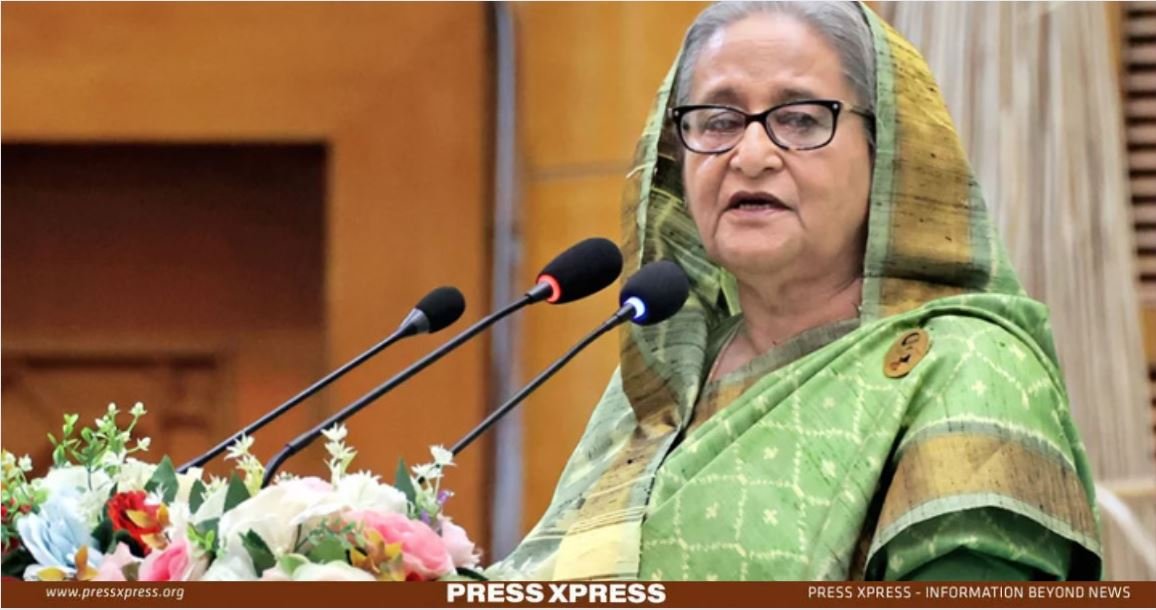Prime Minister Sheikh Hasina emphasized the necessity of diversifying jute products to meet international market demands for maximizing export potential. Speaking at the opening of six jute mills and a three-day multipurpose jute product fair in Dhaka on March 14, 2024, she highlighted the importance of identifying export markets and producing products accordingly.
Observing National Jute Day with the theme “Bangabandhur Sonar Desh, Smart Pat Shilper Bangladesh” on March 6, Hasina underscored the significance of jute in Bangladesh’s economy, advocating for its proper utilization. She urged jute mill authorities to focus on producing new goods, exploring new markets, and increasing jute product exports. Recognizing jute as an eco-friendly commodity with vast market potential, she pledged to provide incentives to promote it both as an agricultural product and an export item.
You can also read: Bangladesh’s Jute Industry Introduces Green Revolution
“We’ve to pay attention to exploring new export markets for jutes, assess what type of goods has demand in different countries, and produce such products accordingly,”
– Prime Minister Sheikh Hasina

The Newly Opened Jute Mills
The newly opened six jute mills, which were leased out by Bangladesh Jute Mills Corporation (BJMC) but now are run under private ventures, are:
- The KFD Jute Mills Ltd at Rangunia in Chattogram
- The Bangladesh Jute Mills at Ghorashal in Narsingdi
- The Jatiya Jute Mills Ltd at Raipur in Sirajganj
- The Jashore Jute Industries Ltd
- The Carpeting Jute Mills Ltd at Rajghat in Jashore
- The Daulatpur Jute Mills Ltd at ShahorKhalishpur in Khulna
Jute And Jute Products Market Scenario
Jute, recognized as the ‘golden fiber’ of Bangladesh, has been utilized for generations due to its cost-effectiveness, biodegradability, and environmentally friendly nature. As per the IMARC Group, the jute bags market is estimated to achieve a value of $3.84 billion by 2027, showing a growth rate of 10.4%. In Bangladesh, the jute sector contributes 1% to the GDP and 3% to export revenues, shipping to more than 100 nations.

Bangladesh exports a variety of jute items, such as unprocessed jute, pouches, sacks, cords, rugs, mats, and others. Jute stick charcoal, a secondary product, possesses export prospects valued at $3.0 to 3.5 billion.Moreover, jute tin, innovated by Bangladeshi scientists, is deemed to be sturdier and more robust than metallic tin.
Recent statistics from the Export Promotion Bureau (EPB) reveal a 19% decrease in jute and jute goods export earnings, totaling $912 million in FY23, in comparison to the $1.12 billion reported in FY22.

Specifically, within this sector, export earnings from jute yarn and twine witnessed the most substantial decline, plunging by 28.64% to around $498 million in FY23, as opposed to roughly $698 million in FY22. Conversely, income from jute sacks and bags experienced an increase of nearly 8% to $109 million in FY23, compared to the preceding fiscal year. Nonetheless, earnings from unprocessed jute exports fell by 5.5% to $204 million in FY23.
Despite the potential of jute and its diverse products, recent data indicates a noticeable decrease in export figures. Various significant factors contribute to this decline.
The ongoing conflict between Russia and Ukraine significantly impacts jute export figures, as both nations are vital economic markets for Bangladesh. Additionally, the conflict in Sudan, another crucial market for Bangladesh’s jute products, has disrupted shipments, leading to volatile market prices and heightened expenses. Furthermore, insufficient production capacity presents challenges in meeting buyers’ demands within specified timeframes. Jute millers also attribute the country’s high production costs to escalating energy prices, fueled by increases in gas and electricity tariffs.
Jute Export Potential Expansion Ways
Diversifying Bangladesh’s jute products to meet international market demands presents a lucrative opportunity for unlocking vast export potential.
Firstly, investing in research and development to understand market trends and consumer preferences is crucial. This entails identifying niche markets and customizing products accordingly. For instance, creating jute-based biodegradable packaging solutions aligns with global sustainability trends.
Furthermore, enhancing product quality through innovation and modernization is imperative. Introducing advanced processing techniques can yield higher-quality jute fibers suitable for various applications, such as textiles, carpets, and upholstery. Collaborating with international partners can provide access to cutting-edge technologies and expertise.
Moreover, branding and marketing strategies play a pivotal role in promoting Bangladeshi jute products abroad. Emphasizing the eco-friendly and sustainable aspects of jute aligns with the growing consumer consciousness towards environmentally friendly alternatives. Leveraging digital platforms and participating in international trade fairs can enhance visibility and attract potential buyers.
Additionally, fostering partnerships with local artisans and designers can add value to jute products by incorporating unique designs and craftsmanship. This not only increases product appeal but also supports local communities.
Overall, by embracing innovation, improving quality, and strategically marketing jute products, Bangladesh can effectively diversify its offerings to cater to diverse international markets, thereby unlocking significant export potential and contributing to economic growth.
In conclusion, Prime Minister Sheikh Hasina’s emphasis on diversifying jute products aligns with Bangladesh’s aim to maximize export potential. Despite recent export declines attributed to global conflicts and production challenges, opportunities exist for expansion through research, innovation, branding, and partnerships. By leveraging these strategies, Bangladesh can tap into diverse international markets, ensuring sustainable economic growth.


